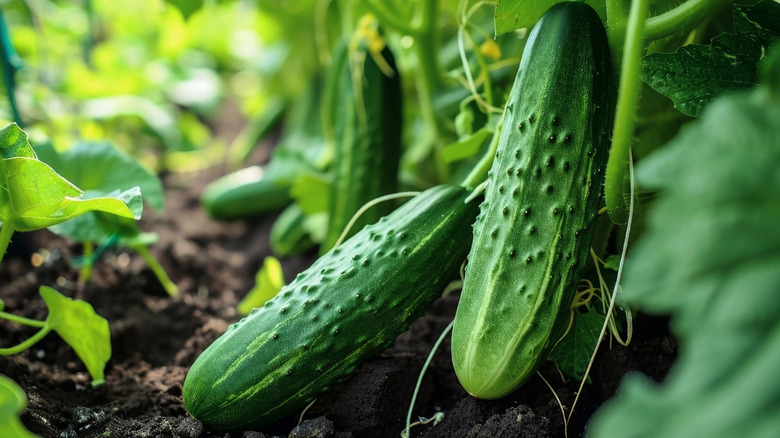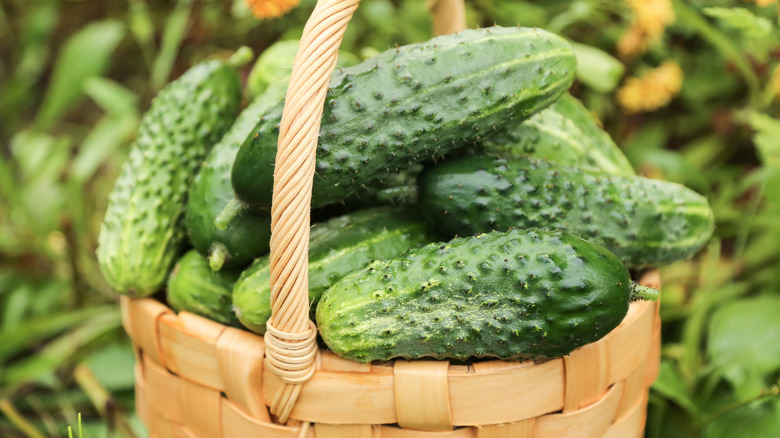Here's What Is Making Your Cucumber Plants So Bitter (& Can You Fix It?)
The bitterness in cucumbers (and some other vegetables like zucchini) comes from cucurbitacin, a chemical the plants produce as a defense against environmental stress and wildlife. In the wild, the concentration is so high that the fruit is virtually inedible and causes extreme gastrointestinal distress. The cucumbers that commercial vegetable producers and home gardeners grow have been bred not to produce high levels of cucurbitacin. There's little you can do after the fact if you discover you've grown a crop of bitter cucumbers, but controlling environmental stressors will help prevent bitterness. That includes the preparation of your garden plot and monitoring the plant's water supply throughout the growing season.
Unfortunately, extremely high temperatures or rapid temperature fluctuations, which are conditions a gardener can't control, are some of the main causes of bitterness in cucumbers. Despite your best efforts, you may wind up with an unusable crop if you've experienced an extreme growing season. It's also critical to supply the plants with enough water without overwatering, which can lead to disease. Because cucumbers have a shallow root system, it's best to keep the soil moist to a depth of 6 inches. One option is installing an individual drip irrigation system, where hoses run along the plants, to provide a uniform supply of moisture. Water the plants in the morning, avoid wetting the foliage to prevent disease, and adjust how often you irrigate based on how hot and sunny it is and how dry the soil is.
How to grow tasty cucumbers
Cucumbers, hardy in USDA Hardiness Zones 2 through 11, do best in sunny areas. Well-draining sandy or clay loam soil with a pH between 6 and 6.5 is best to avoid bitterness. Enrich the soil with organic matter if necessary, and do a soil test to determine which fertilizer will be best. Follow the planting directions on the seed packet for the variety of cucumber you're growing in your home garden. When seedlings appear, spread mulch around the plants. Consider training the vines on a trellis to keep the fruit off the ground. Check the plants as soon as they emerge and regularly after that for signs of pests or diseases. Outbreaks of cucumber beetles, mites, or powdery mildew should be dealt with right away, preferably in a non-toxic way that protects your plants. If you use pesticides, spray at night or in the early morning when pollinators are less likely to be active.
Cucumbers left on the vine past their suggested harvest time become more bitter as they age. In fact, fruit harvested when it's slightly immature has the best flavor, and frequent harvesting will encourage the vines to produce more fruit. Improper storage after picking can also cause slight bitterness, so store cucumbers in the refrigerator. If you find yourself with an unpleasantly bitter crop, try slicing the blossom end off a cucumber and peeling it. If that doesn't help, even pickling won't make it taste better. If all else fails, there is one last thing you can do to almost guarantee success next year: start with seeds labeled bitter-free like 'Sweet Success,' 'Burpless,' and 'County Fair.'

